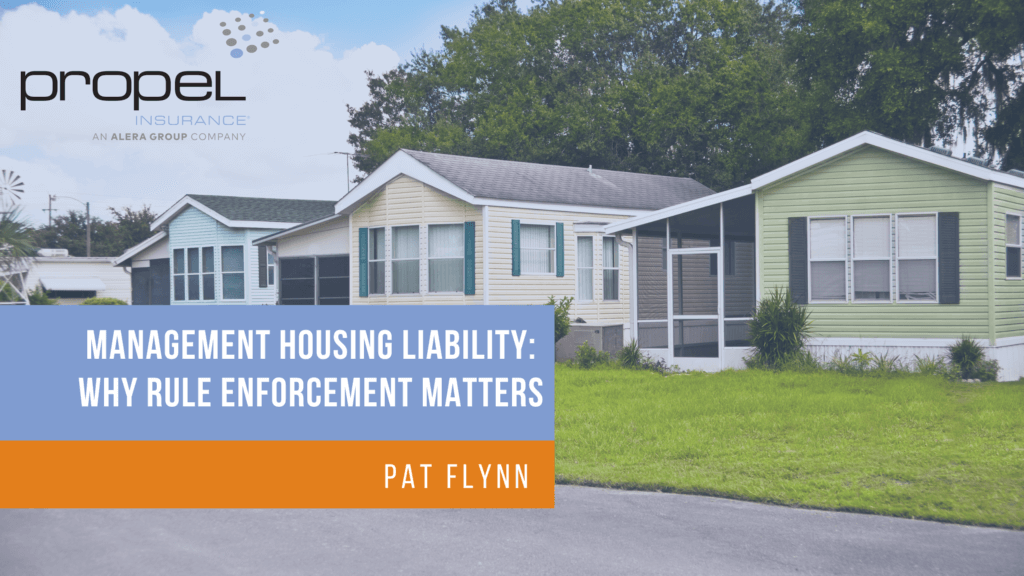Propel provides innovative insurance solutions to thousands of companies across the country. We make it our business to know your world inside and out.
Insights, Manufactured Housing
Manufactured Housing Community Liability: Why Rule Enforcement Matters
Rules aren’t always made to be broken. Many exist for good reason, often to keep people safe. If you don’t enforce your rules, someone could get hurt – and you could be found liable.
How Lax Rule Enforcement Leads to Liability
Imagine you’re running a manufactured housing community and have a rule banning aggressive dog breeds. Some of the residents have prohibited dogs, but since the dogs haven’t caused any problems, you let it slide.
Then one of the dogs bites a child and is gravely injured.
A dog bite is bad enough under normal circumstances, but since you or your manager had knowledge of and allowed the dog in violation of your community rules, you face additional liability exposures. The child’s parents may blame you for not enforcing the rules, and the courts may agree.
How Liability and Lawsuits Work
To understand how you could be held liable for a dog bite caused by someone else’s dog, it’s important to understand how liability and lawsuits work.
According to Investopedia, most civil lawsuits fall under tort law. If a person is harmed, tort law provides a way for the person to receive monetary compensation. This compensation can cover medical payments and loss of income as well as compensating someone for pain and suffering. In negligent torts, the defendant is accused of failing to exercise a reasonable standard of care.
Cornell Law School says four elements are needed to establish negligence:
- The defendant owed a legal duty to the plaintiff.
- The defendant breached that duty.
- The plaintiff suffered an injury.
- The defendant’s breach caused that injury.
Claims of negligence often allege the defendant knew or should have known about the danger. Therefore, if you knew there was a danger and failed to act, you may be liable for the resulting harm.
Applying this to the dog bite example, it’s easy to see how a claim of negligence could occur. The manufactured housing community had an official rule prohibiting certain dog breeds, implying you knew these breeds could pose a danger. You have a duty to provide a safe environment for residents; you breached this duty by failing to enforce the community’s rules. A child was injured as a direct result of your failure to enforce the rules.
When Lawsuits Go Nuclear
We’ve established that you could be held liable if someone is hurt because you fail to enforce your rules, but how big could the lawsuit be?
Inflation makes everything more expensive. One type of inflation, called social inflation, makes lawsuits more expensive. According to the Insurance Information Institute, social inflation has several causes, including the rise of litigation funding and the growth of awards from sympathetic juries. Very large jury awards (especially those in excess of $10 million) are called nuclear verdicts. They’ve become more common in recent years as juries try to punish organizations accused of negligence.
The rise of nuclear verdicts makes it difficult to put a limit on how expensive lawsuits can become. Take the case of Charter Communications. A technician employed by the cable company robbed and killed a customer. He was found guilty of murder. The cable company was sued for negligence and failing to verify the technician’s employment history. A jury awarded the plaintiff $7.34 billion in damages.
A single nuclear verdict can be devastating. Some companies may not survive. According to Freight Waves, a trucking company in Illinois had to file for bankruptcy after being hit with a $10 million nuclear verdict.
Rules Are Made to Be Followed
Common sense rules can help you create a safe environment. However, if you fail to enforce your rules, you could increase your liability exposures. The dog bite scenario is just one of many ways this could happen. Consider the following scenarios, for example:
- As part of your standard hiring process, you’re supposed to conduct background checks, verify work histories, and check references. However, as you’re short staffed, you hire a maintenance worker without checking references or verifying his work history. The maintenance worker uses his position to access and hurt a child who lives in your community. You’re found liable for negligent hiring practices.
- You have a community pool. The rules state that children under 13 cannot use the pool unless an adult is supervising. You know that children under 13 regularly use the pool without adult supervision while their parents are at work, but you decide to let them because they’re well behaved. Then one of the children drowns and the parents sue you for negligence.
Rules exist for a reason. By enforcing your rules, you can help keep your community safe and avoid liability.
We insure over 3,000 manufactured housing communities across the country with an exclusive program. Need risk management guidance and robust coverage? Reach out to start a conversation.

Pat Flynn
Pat Flynn has managed risks for transportation as well as moving and storage clients for more than two decades. In that time Pat has developed an understanding of the challenges clients face like few other professionals in the country. More about Pat...


